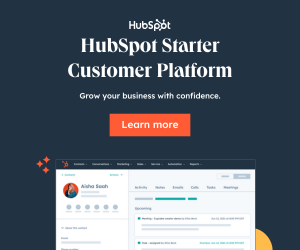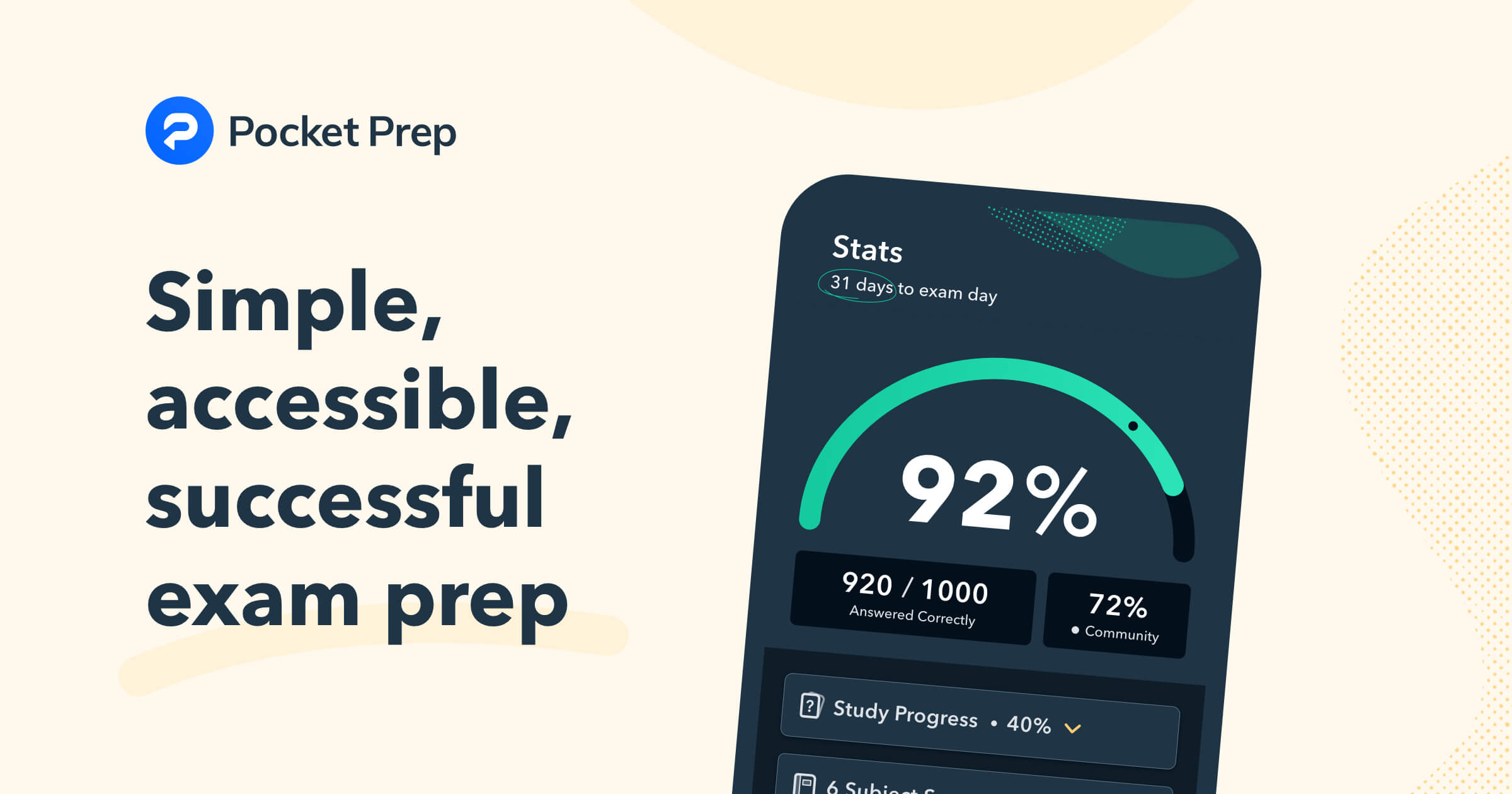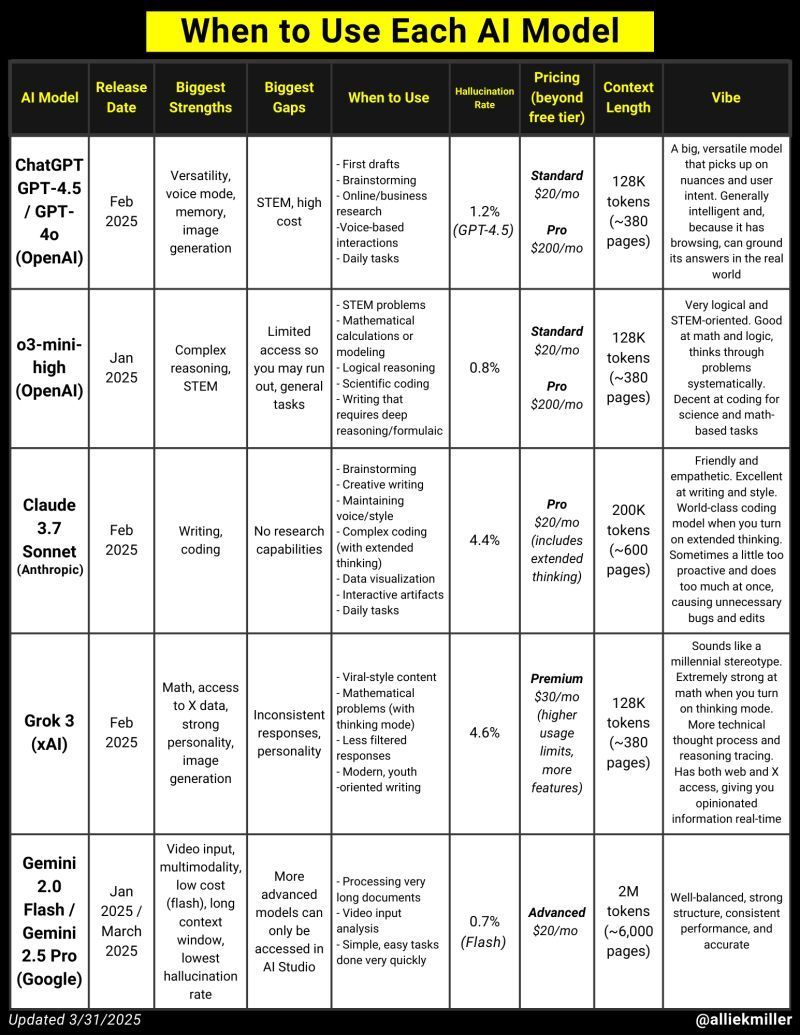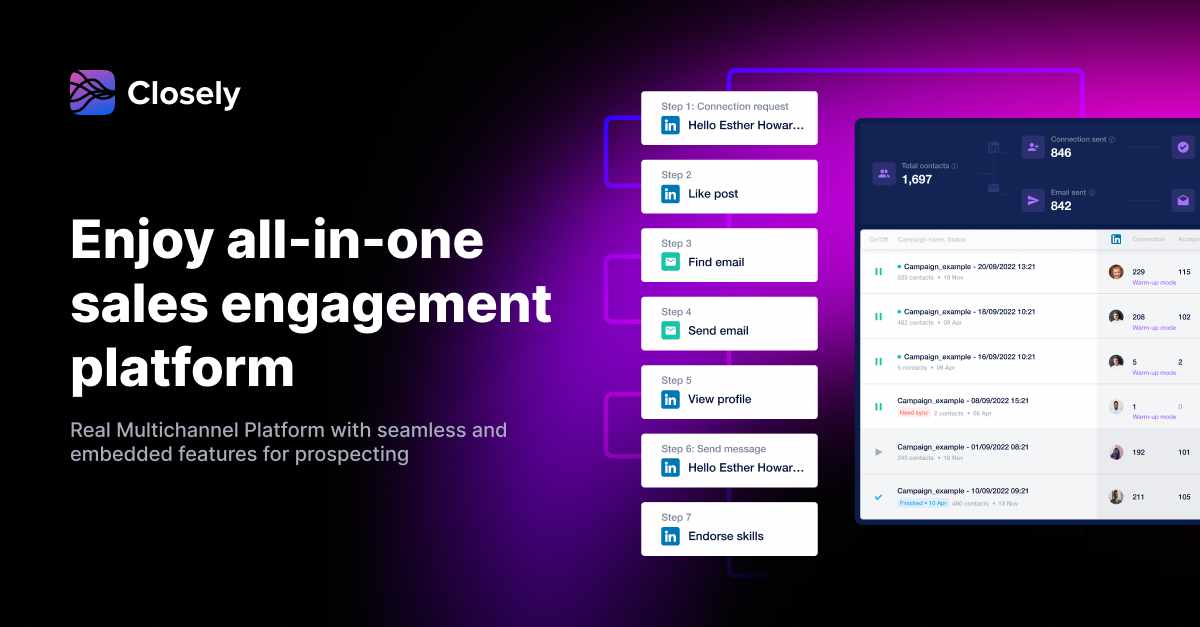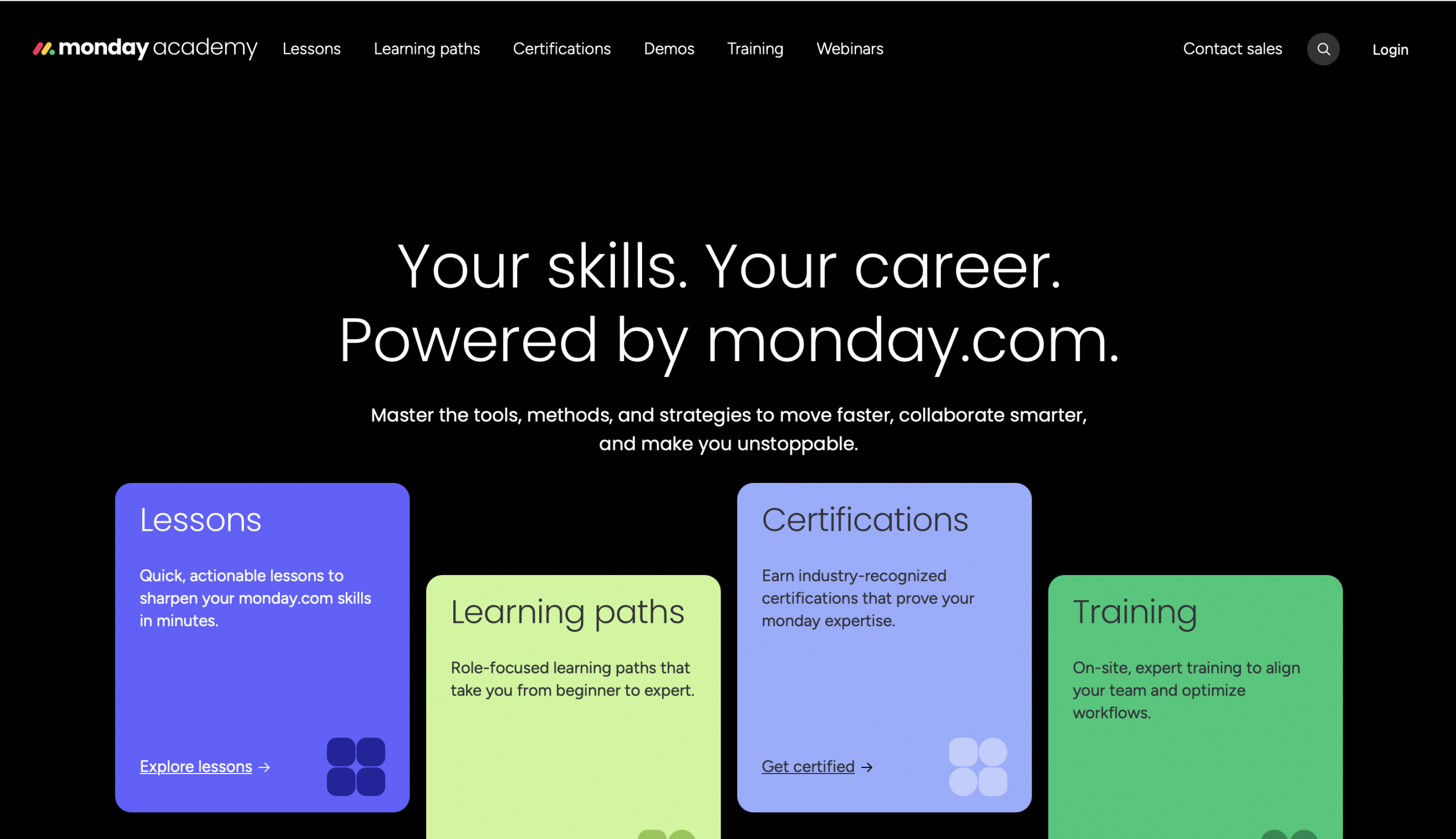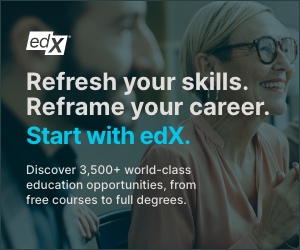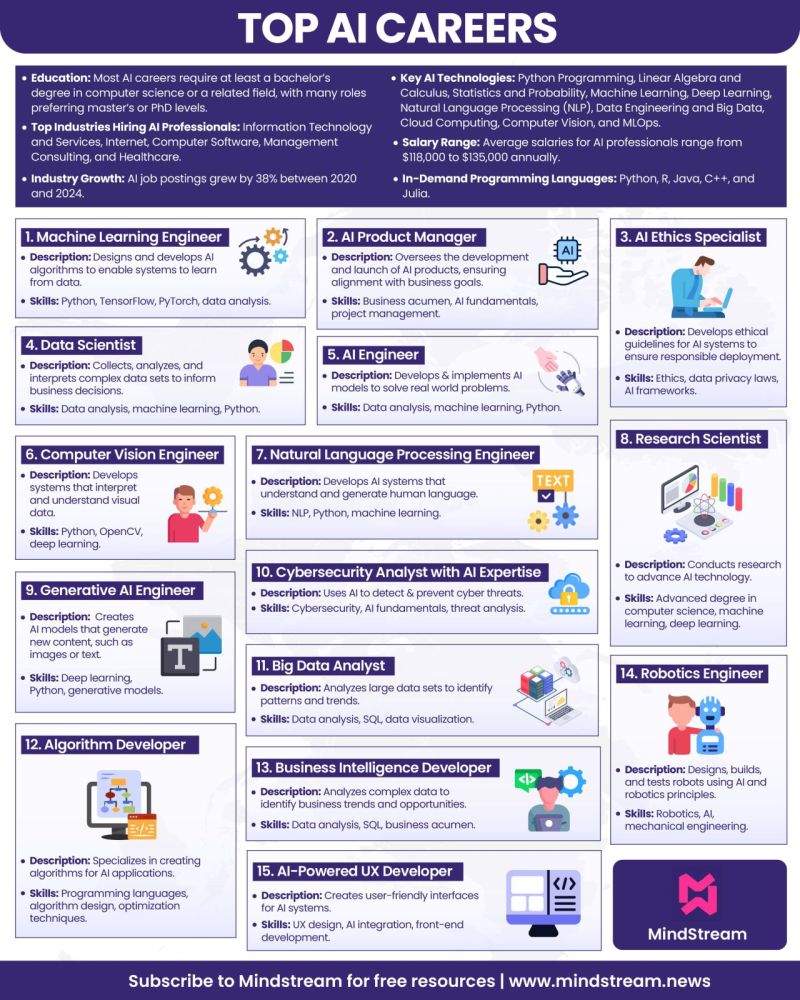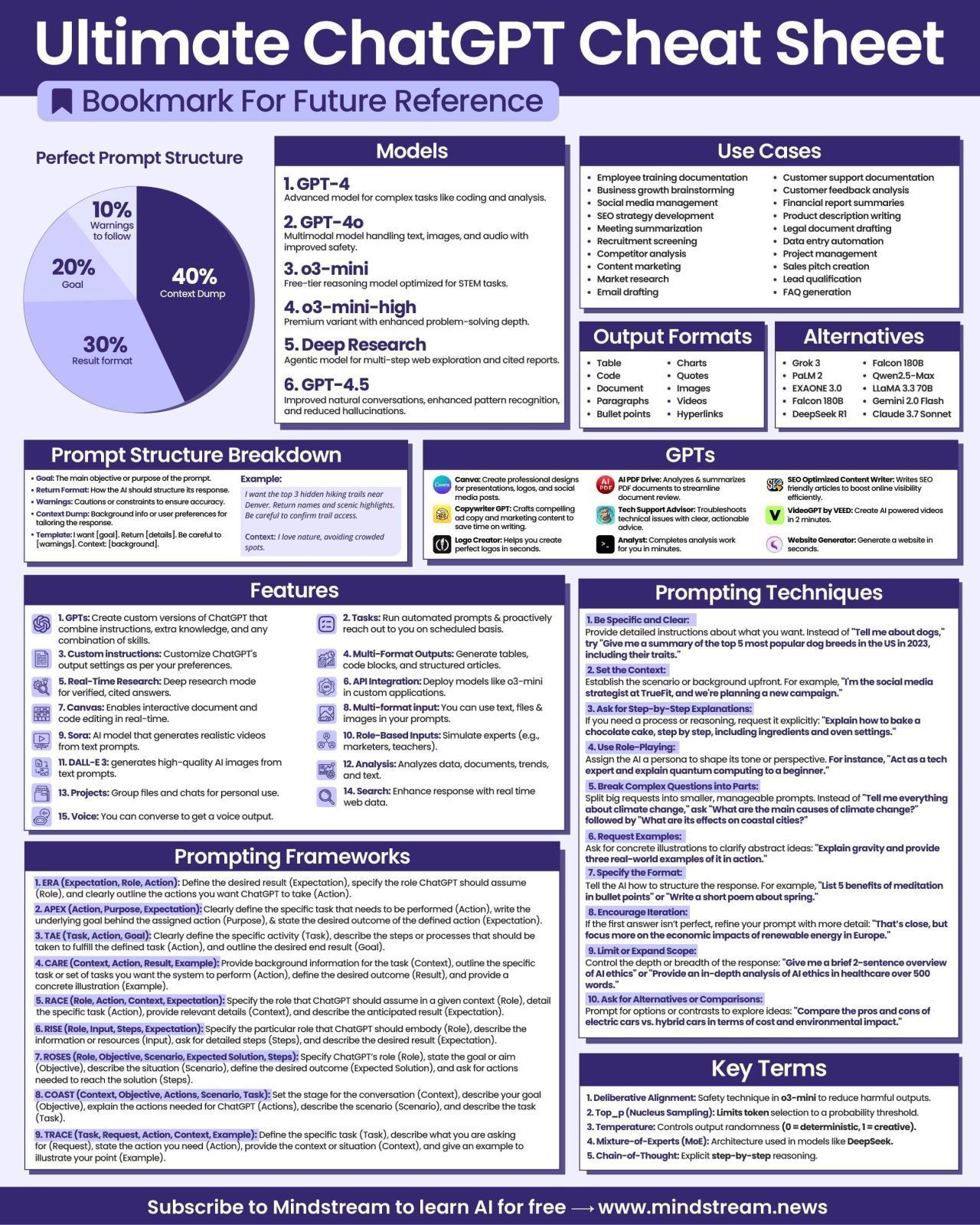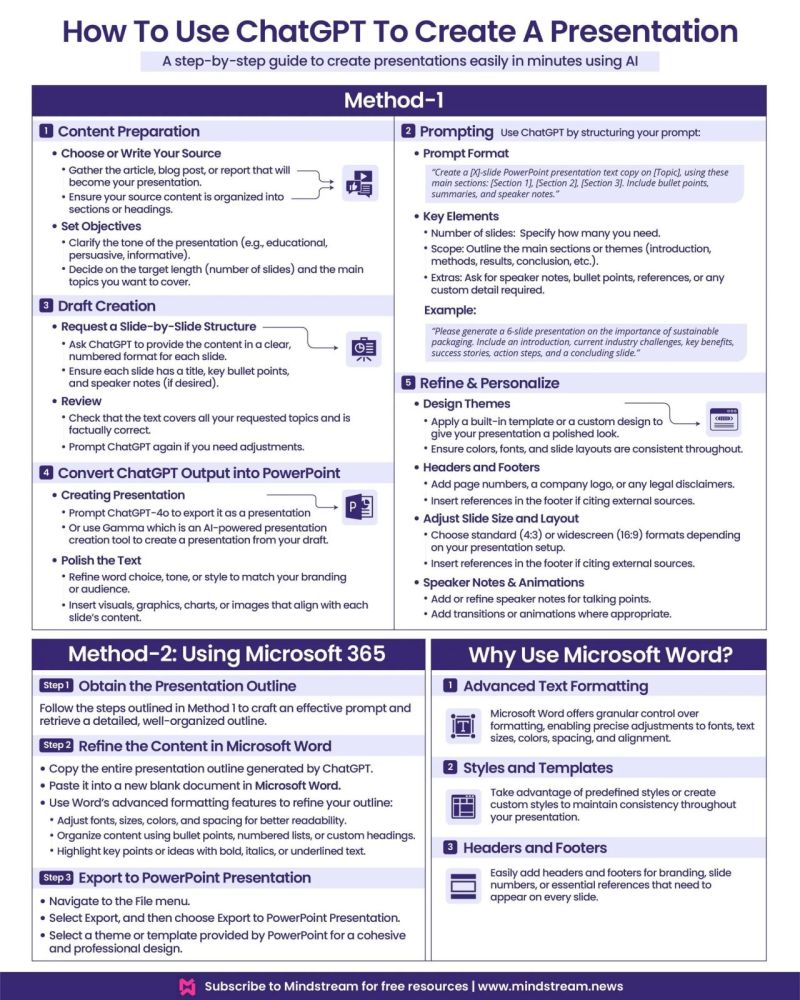Artificial intelligence (AI) may impact 40% of the global workforce, according to a recent UN report. Given the hyperspeed of AI development, we believe the number likely is much higher. What’s clear is that the AI race is not just a technological evolution; it’s a fundamental shift in the way we work, interact, and shape our future. As AI continues to permeate every facet of the global economy, from automating routine tasks to driving innovation in complex problem-solving, its impact on the workforce is undeniable. Professionals in every sector, from marketing to medicine, are facing a paradigm shift requiring a proactive approach to learning and adaptation. This transformation presents both unprecedented opportunities and challenges, making the acquisition of AI literacy no longer a choice but a necessity for career professionals. Additionally, senior leadership and human resource professionals from SMEs to large enterprises must ensure teams are equipped with AI skills to effectively compete and win in the global marketplace.
This article, geared toward career professionals at risk from AI, explores the transformative growth of AI and its impact on job displacement across various sectors. We also identify which jobs are most at risk from AI. We also discuss popular Large Language Models (LLMs) and the essential skills professionals need to master to stay competitive. Finally, we highlight valuable learning platforms like edX, Udacity, and Google Career Certificates, as well as learning academies from leading global players in workflow management, inbound marketing, online visibility management, and creative design. Access to many of these courses is free, offering industry-accepted certifications that can help professionals advance their AI careers. Be sure to read until the end for free AI resources and follow us on LinkedIn. Now let’s get started.
Disclosure: At ClearSky 2100 Ventures, our Growth Partner Network partly consists of affiliate partnerships. We may earn a small commission from buying links on our site at no cost to you.
The AI Revolution: Growth and Job Displacement from AI
AI is no longer a futuristic concept; it’s here, and it’s growing exponentially. It’s been only 2.5 years since ChatGPT was released to the public. Today there exist over 70,000 AI companies, with 25% of the total in the startup phase. More importantly, roughly 82% of all companies worldwide are using AI in some form. The WEF Future of Jobs Report 2025 indicates that AI and information processing technologies are expected to have the biggest impact on businesses, with 86% of employers surveyed anticipating transformation in their operations by 2030. This rapid integration of AI into various sectors means that professionals across every industry need to adapt or risk being left behind.
AI and Job Transformation
The Future of Jobs Report 2025 highlights several key trends driving this transformation:
- Technological Advancements: AI and information processing technologies are at the forefront, with 86% of employers expecting them to significantly transform their businesses. This includes a surge in generative AI, which has seen investment flows increase nearly eightfold since the release of ChatGPT in November 2022.
- Automation: Robotics and autonomous systems are also expected to have a substantial impact, with 58% of employers anticipating significant transformation in their operations due to these technologies.
- Economic Pressures: Rising costs of living and broader economic slowdown worldwide are compelling businesses to adopt AI for efficiency and cost reduction.
- Green Transition: The shift towards sustainable practices is creating new demands for AI in areas like renewable energy and climate change adaptation.
LLMs are very large deep learning models that are pre-trained on vast amounts of data
Job Creation and Displacement
The integration of AI is expected to have a dual effect on the job market, creating new roles while also displacing existing ones. By 2025, AI is projected to create 97 million new roles but also displace 85 million jobs. However, the growth of Agentic AI and the transition to Artificial General Intelligence is expected to displace between 400 and 800 million jobs, according to analysts.
- Job Growth: The fastest-growing roles are often technology-related, such as AI and Machine Learning Specialists, Data Analysts and Data Scientists , and Software and Application Developers. There is also significant growth expected in green jobs to support energy transition. Roles like renewable energy engineers, environmental engineers, and autonomous and electric vehicle specialists will experience significant growth.
- Job Displacement: The jobs most at risk of displacement are typically clerical or routine-based, including roles like data entry clerks, administrative assistants, and customer service roles.
The Impact of LLMs on the Workforce
Large Language Models (LLMs) are a significant driver of AI’s impact on the workforce. LLMs are very large deep learning models that are pre-trained on vast amounts of data. These models, capable of generating human-like text, translating languages, and even writing code, are rapidly being integrated into various applications. However, at this stage it still remains a garbage-in, garbage-out framework, as the effectiveness of these deep learning models remains a function of the inputs or prompts. LLM hallucination remains a real risk. However, as models become more efficient and accuracy improves, hallucination risk continues to diminish.
Prompting, a core component of model use, remains an art, with the most successful prompts being around 21 words. As LLMs become more sophisticated, they are likely to automate tasks previously performed by humans, leading to further job displacement in certain sectors. However, they also create new opportunities for professionals who can effectively use and manage these technologies.
Adapting to the AI Revolution
To thrive in this evolving landscape, career professionals must embrace continuous learning and develop new skills. We recommend professionals at risk focus on strengthening skills that complement AI, such as
- Technical Skills: AI and Big Data, Technology Literacy, and Programming.
- Soft Skills: Creative Thinking, Analytical Thinking, Resilience, Flexibility, and Leadership.
Key Skills and LLMs for Career Professionals
To navigate this changing landscape, career professionals need to focus on developing a combination of technical and soft skills. The Future of Jobs Report 2025 emphasizes that analytical thinking remains the most sought-after skill, but other skills are rapidly gaining importance. These include:
- AI and Big Data: The ability to work with and understand AI and Big Data is crucial.
- Technology Literacy: Beyond basic computer skills, professionals need to understand how technology can be applied to solve problems in their specific domain.
- Creative Thinking: As AI handles routine tasks, human creativity becomes even more valuable for innovation and problem-solving.
- Resilience, Flexibility, and Agility: The ability to adapt to new technologies and changing job roles is paramount.
- Leadership and Social Influence: The uniquely human skills of leadership, collaboration, and communication become more important in an AI-human collaborative workplace.
Large Language Models (LLMs) are a critical aspect of the AI revolution. LLMs like Google’s Gemini, OpenAI’s GPT, Anthropic’s Claude, and DeepSeek are rapidly evolving and becoming more integrated into various applications. These models are already capable of tasks such as
- Generating high-quality text for various purposes (emails, articles, marketing copy, etc.)
- Summarizing large amounts of data both structured and unstructured
- Translating languages
- Generating different kinds of creative content.
- Writing and debugging code
Many of the activities listed above were once held by employees who are now being displaced. As such, career professionals must understand LLMs and that how to effectively use them is becoming increasingly important. This includes:
- Prompt Engineering: Learning how to craft effective prompts to get the desired output from LLMs. Prompting is an art, and the most successful prompts are around 21 words but can reach as high as more than 3000 words. In building prompts, clarity and specificity are key.
- Understanding the Capabilities and Limitations of LLMs: Knowing what LLMs can and cannot do is crucial for responsible and effective use. These models generate responses based on probability and pattern recognition, not true understanding.
- Ethical Considerations: Being aware of the potential biases and misuse of LLMs is essential for responsible application in the workplace.
In the context of AI, a prompt is the input you provide to the model to elicit a specific response
Major AI Platforms
Several AI platforms are at the forefront of this technological shift, each with its unique strengths and applications. Many LLMs were publicly released between 2022-2023 and continue to experience rapid development, with training and release cycles tightening.
The Top LLMs
Gemini
Google’s Gemini, launched in 2023, is a multimodal LLM capable of handling various types of information, including text, code, and images. Its versatility makes it well-suited for a wide range of tasks, from generating creative content to powering complex applications. Gemini’s ability to understand and generate content across different modalities represents a significant step towards more human-like interaction with AI. A key advantage of Gemini is its deep integration with Google’s ecosystem, such as Google Workspace, enabling seamless interaction with other Google services and data. Its current model is Gemini 2.5.
ChatGPT (Generative Pre-trained Transformer)
Developed by OpenAI, GPT, which was launched in 2022, has demonstrated remarkable capabilities in text generation, language translation, and creative writing. Its ability to produce coherent and contextually relevant text has made it a popular choice for various applications, including content creation, customer service, and virtual assistance. GPT’s continuous evolution has led to increasingly sophisticated models with enhanced capabilities and broader applications. GPT stands out for its extensive training data and its ability to generate human-like text, making it a versatile tool for various natural language processing tasks. OpenAI’s most current models are o3 and o4-mini.
Claude
Anthropic’s Claude, introduced in 2023, is designed with a strong emphasis on safety and helpfulness. Claude aims to be less prone to generating harmful or biased content, making it a valuable tool for applications where responsible AI is paramount. Its focus on aligning AI behavior with human values makes it a noteworthy development in the field of LLMs. Claude’s constitutional AI approach, which uses a set of principles to guide its responses, is a unique feature that distinguishes it from other LLMs. Anthropic’s most recent model is Claude 3.7 Sonnet.
DeepSeek
DeepSeek, founded in 2023, specializes in coding and reasoning tasks. Its models are trained to excel at understanding and generating code in various programming languages, making it a valuable asset for software development and related fields. DeepSeek’s emphasis on these areas highlights the growing importance of AI in automating and enhancing complex technical tasks. Their models are known for their strong performance in complex coding challenges. The most recent DeepSeek model is DeepSeek-R2.
Qwen
Qwen, developed by Alibaba and first released in 2023, is a family of large language models demonstrating strong performance in the Chinese language and showing promise in cross-lingual applications. Qwen models have achieved competitive results in various benchmarks, showcasing their potential in understanding and generating both Chinese and English text. Alibaba’s extensive resources and expertise in the Asian market provide Qwen with a unique advantage in serving this region. The most recent LLM is Qwen3.
Optimal Uses for Various AI Models
Leading Multi-Use AI Platforms
Meta AI
Meta AI, introduced in September 2023, is designed for a variety of applications, including chat, image generation, and social media integration. Built on its proprietary LLM Llama3, Meta AI is notable for its focus on social interaction. It aims to enhance user experience across Meta’s platforms, such as Facebook, Instagram, and WhatsApp. Its development reflects the growing interest in integrating AI into social media to facilitate communication and content creation. Meta AI leverages Meta’s vast resources and user data to drive its development and innovation. Meta recently released a standalone app on April 29, 2025.
Perplexity
Perplexity AI, founded in 2022, functions as an AI-powered search engine that provides direct, cited answers to user queries. It distinguishes itself by prioritizing transparency and accuracy, giving users confidence in the information they receive. Perplexity’s approach to search offers a new way to access information by providing sources and context for its responses. Perplexity AI used its own proprietary LLM, but it allows users with higher-tier subscriptions to access LLMs from OpenAI and Claude.
Copilot
Microsoft’s Copilot, initially released in February 2023 as a replacement for Windows assistant Cortana. It’s an AI assistant integrated into productivity and coding tools. It aims to enhance user efficiency by providing intelligent suggestions and automating tasks within applications like Microsoft 365 and Visual Studio. Copilot’s deep integration with Microsoft 365 and its focus on enhancing user productivity are key advantages.
Learning Platforms for An AI Future
Fortunately, many resources are available for professionals who want to learn AI and related skills. Platforms like Google, edX, and Udacity offer a wide range of courses and specializations, including AI, machine learning, data science, and related fields. Google also provides several free resources and certificate programs. Here’s a closer look at a few key platforms:
Google Career Certificates
Google offers a variety of certificate programs designed to provide individuals with job-ready skills in high-demand fields, including AI. These programs are developed by Google experts and are often self-paced, allowing learners to progress at their own speed. Google certificates emphasize practical skills and are recognized by many employers, making them a valuable asset for career advancement. Some of the major Google Career Certificates include:
- Google AI Essentials: This course provides foundational knowledge of artificial intelligence (AI) concepts and their practical applications. It covers topics like machine learning, deep learning, and natural language processing, helping you understand how AI technologies work and how they can be applied across various industries.
- Google Prompting Essentials: This course focuses on the crucial skill of prompt engineering, which is crafting effective prompts to interact with AI models and obtain desired results. It teaches you how to write clear, concise, and well-structured prompts to guide AI models in generating specific outputs, improving the accuracy and relevance of AI-generated content.
- Google Agile Essentials: This course introduces the principles and practices of Agile methodologies. While not directly AI-focused, Agile skills are increasingly important in tech-driven environments. The course covers Agile frameworks, iterative development, and collaborative teamwork, which are valuable for adapting to the fast-paced nature of AI development and implementation
edX
edX is a massive open online course (MOOC) platform founded by Harvard and MIT. It offers courses from top universities and institutions worldwide, covering a wide range of subjects, including AI, machine learning, and data science. edX provides both free and paid options, with paid certificates available for those seeking formal recognition of their skills.
Udacity
Udacity focuses on providing “Nanodegree” programs, which are intensive online learning experiences designed to equip individuals with specific, in-demand tech skills. Udacity’s programs are developed in collaboration with industry partners, ensuring that the curriculum aligns with the needs of employers. While Udacity’s programs are typically paid, they offer a focused and career-oriented approach to learning AI and related fields.
Other Practical AI Learning Opportunities
In addition to the MOOCs, career professionals seeking to upskill in AI can take advantage of leading companies offering robust learning platforms. These areas include leading enterprise players in workflow management, inbound marketing, online visibility management, and creative design. These learning academies are primarily geared toward supporting their respective customer bases. However, opportunities do exist for students and professionals to expand knowledge of AI in the context of these specific business activities.
Hubspot
HubSpot is a leading customer relationship management (CRM) platform that provides software and tools to help businesses grow. It offers a suite of products, or “Hubs,” for marketing, sales, service, content management, and operations.
These tools help businesses attract visitors, convert leads, close deals, and manage customer relationships. HubSpot’s platform is known for its user-friendly interface and focus on inbound marketing methodologies, empowering companies to deliver personalized and engaging customer experiences.
In addition to its core product offering, HubSpot offers perhaps one of the best learning ecosystems to support its customer base. It’s also beneficial to those seeking to upskill in areas relevant to its core business.
HubSpot provides resources on AI through its HubSpot Academy, aiming to enhance user skills and understanding of AI applications. HubSpot Academy offers courses that cover the transformative impact of AI across various industries, designed to give professionals a competitive edge. These educational materials emphasize the practical application of AI, helping users to integrate this technology into their workflows.
In addition to learning opportunities through HubSpot, professionals building AI careers can also join Agent.ai. Agent.ai is an agentic AI platform billed as the world’s first independent agentic AI professional network. The platform, while not part of HubSpot, was founded by its Chief Technology Officer. Joining is free.
monday.com
monday.com is a versatile Work OS that empowers teams to create custom workflows. It provides a platform with no-code building blocks, enabling businesses to manage various aspects of their work. monday.com offers solutions for project management, sales CRM, and software development. Users can tailor workflows using boards, dashboards, apps, integrations, and automations. The platform centralizes tools and processes, streamlining collaboration, enhancing productivity, and providing a unified view of work.
monday.com is also incorporating AI to enhance its capabilities, including AI Blocks, which brings intelligence to workflows, helping teams work faster and make smarter decisions. monday.com provides AI-powered templates and AI assistant apps.
The Monday Academy offers training resources to help users master monday.com. It provides courses, webinars, and industry-recognized certifications for various roles and expertise levels. The academy focuses on building workflows, automating tasks, and managing accounts effectively. It offers personalized courses, interactive lessons, and hands-on practice. Additionally, it provides team training and fosters a learning community for support.
Semrush
Semrush is a leading online visibility management and content marketing platform. It offers a comprehensive suite of tools for SEO, PPC, social media, content marketing, and competitive research. Semrush helps businesses improve their online presence, discover marketing insights, and optimize their digital marketing strategies. The platform provides data and analytics to help users understand their online performance, identify growth opportunities, and track competitor activities.
Semrush Academy’s free AI courses and certificates help marketers enhance customer engagement, optimize marketing operations, and drive growth using AI. Semrush AI courses also benefit students and recent graduates who want to add cutting-edge skills to their resumes and anyone with a curiosity about artificial intelligence and its applications in various industries. Semrush Academy offers courses for all expertise levels, focusing on AI’s applications and implications in marketing.
Canva
Canva is a user-friendly online graphic design platform that empowers individuals and teams to create visually appealing content. Launched in 2013, it offers an intuitive drag-and-drop interface and a vast library of customizable templates for various projects, including social media posts, presentations, posters, and videos.
With its extensive collection of stock photos, graphics, fonts, and design elements, Canva caters to users of all skill levels, eliminating the need for advanced design software. It also provides collaboration features, allowing teams to work together on designs in real-time. While a free version exists, Canva Pro unlocks premium assets and tools, making it a versatile solution for both personal and professional design needs. Canva also offers Canva Enterprise, a tailored solution for larger organizations needing advanced brand management, collaboration, and security features.
Canva also offers a Design School. It is a valuable resource for anyone looking to enhance their design skills and master the Canva platform. Its comprehensive collection of courses and tutorials covers fundamental design principles like typography, color theory, and layout, alongside practical guidance on utilizing Canva’s extensive features.
Whether you’re a complete beginner or an experienced designer seeking to streamline your workflow, the Design School offers accessible and engaging learning materials to help you create impactful visuals for any project. It’s a fantastic way to unlock your creative potential.
Getting Started with AI: Cheat Sheets for Quick Reference
To help you quickly grasp essential AI concepts and tools, we’ve compiled a series of cheat sheets. These concise resources provide key information and practical tips for various AI applications:
AI Cheat Sheets to Level Up
- Top AI Careers : Top AI Careers to pursue in an AI workforce of the future.
- Ultimate ChatGPT Cheat Sheet: Provides a ready-to-use prompting framework to get the most out of ChatGPT.
- ChatGPT for Business Owners: Includes targeted ChatGPT prompts to help business owners streamline operations and improve decision-making.
- How to Use ChatGPT to Create a Presentation: Focuses on using ChatGPT to create a presentation using Microsoft 365.
These cheat sheets are designed to be practical and easy to use, enabling you to quickly apply AI in your daily work.
The Importance of Continuous Learning
In conclusion, the rise of AI presents a transformative opportunity for career professionals. However, disruption is inevitable, with a significant impact on the global workforce expected by 2030. By embracing this technology and proactively acquiring AI-related skills, individuals can future-proof their careers. What’s clear is that access to learning resources from MOOCs and industry leaders is available to everyone, and most are free. Leveraging these resources can position workers at the forefront of innovation in their respective fields. It may also trigger ideas to start new pursuits such as solopreneurship. The key is to adopt a mindset of continuous learning and growth, viewing AI as a tool for augmentation rather than replacement. Although certain roles will disappear due to AI, others will emerge, as is the case with innovation and disruption across societies.
As the demand for AI expertise continues to surge across industries, those who invest in developing their AI capabilities will undoubtedly gain a competitive edge and unlock new career possibilities. The rapid pace of technological advancement means that the skills needed to thrive in the workplace are constantly evolving. Therefore, a commitment to lifelong learning is not just beneficial but essential for staying competitive and relevant in the global job market.

